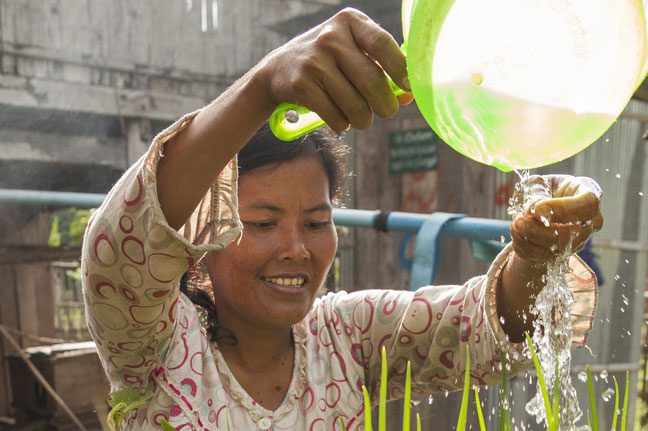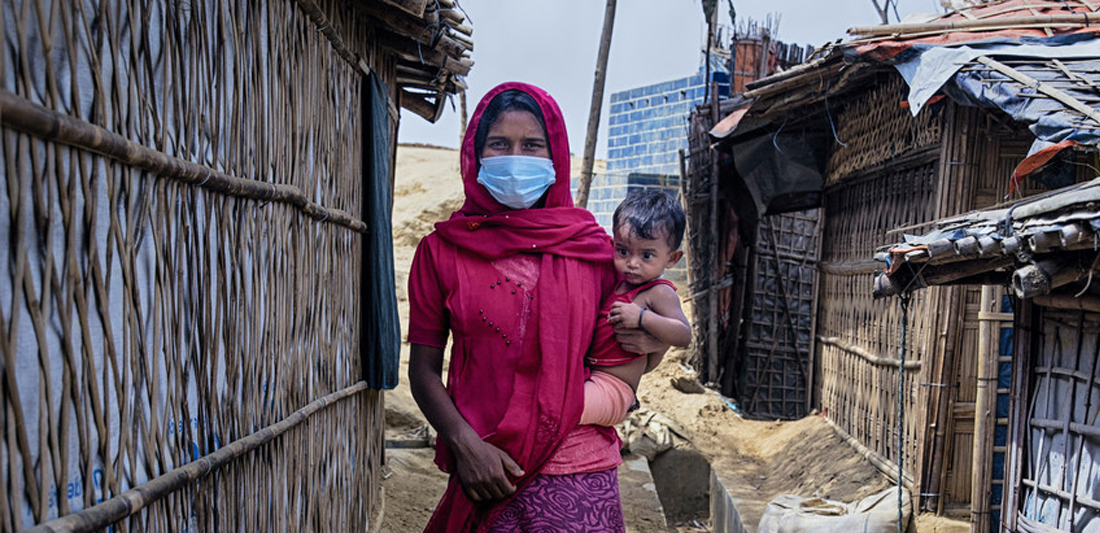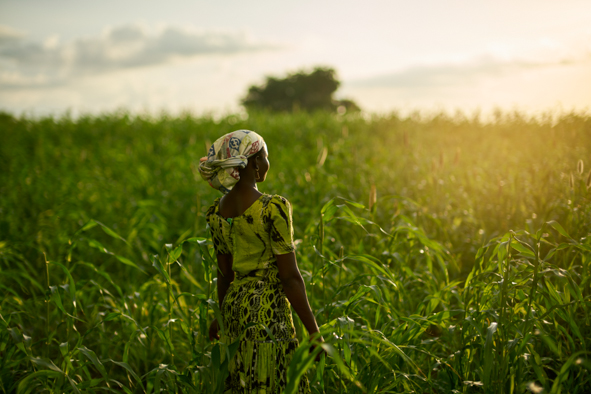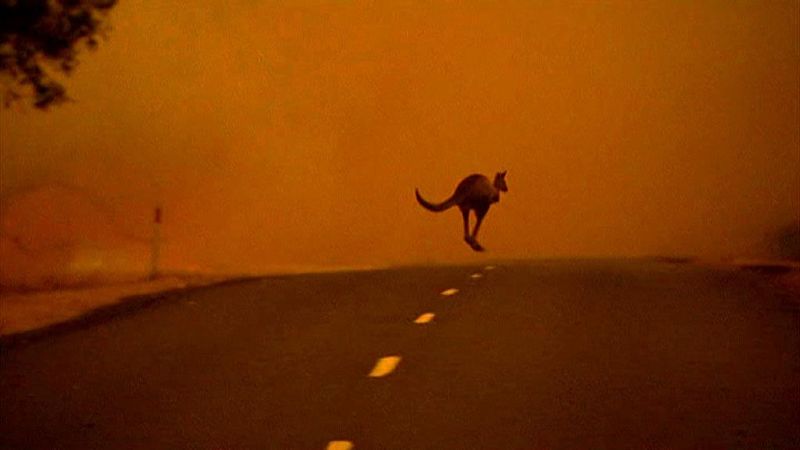Recently we shared a story with you from Cambodia about a family that was experiencing the powerful effects of clean water.
Thanks to supporters just like you, Sineth now has the opportunity of planting and maintaining her own vegetable garden. This means fresh, healthy food for her and her children.
“Now it is easy for me and my family because we have enough water … I can take the water to water the vegetables … I have plans to grow more vegetables. I am so happy that I see Oxfam can teach me and other people in my village for practicing the hygiene … I am so happy.” – Sineth
Sineth is no stranger to hard work – she’s been busy selling her labor as a farmer to support her family for years.
This was almost in vain when doctor’s bills and the cost of treatment for completely preventable illnesses caused by dirty water and poor sanitation put her and her family into debt.
The statistics are frightening
According to the World Health Organisation, unsafe water and lack of basic sanitation cause 80% of diseases and kills more people every year than all forms of violence, including war.
But thanks to supporters like you, Sineth received a clean water kit and hygiene training that has changed the lives of her and her children.
She now volunteers as a Hygiene Promoter to train others in her community. Her volunteer work will now continue to spread the life saving effects of your generosity.
With your help, the solution to the problems of dirty water is clear. Oxfam plans to help close to 17,000 people like Sineth in Cambodia in the next year alone. But we need your help to achieve this.
You can help more families like Sineth’s by providing life saving clean water and sanitation.


 Doris*, daughter, 5; Pamila*, 2. Christina grows maize and she was shown how to make compost as part of the CRAFS (Climate Resilient Agriculture and Food Systems) programme.
Doris*, daughter, 5; Pamila*, 2. Christina grows maize and she was shown how to make compost as part of the CRAFS (Climate Resilient Agriculture and Food Systems) programme.
